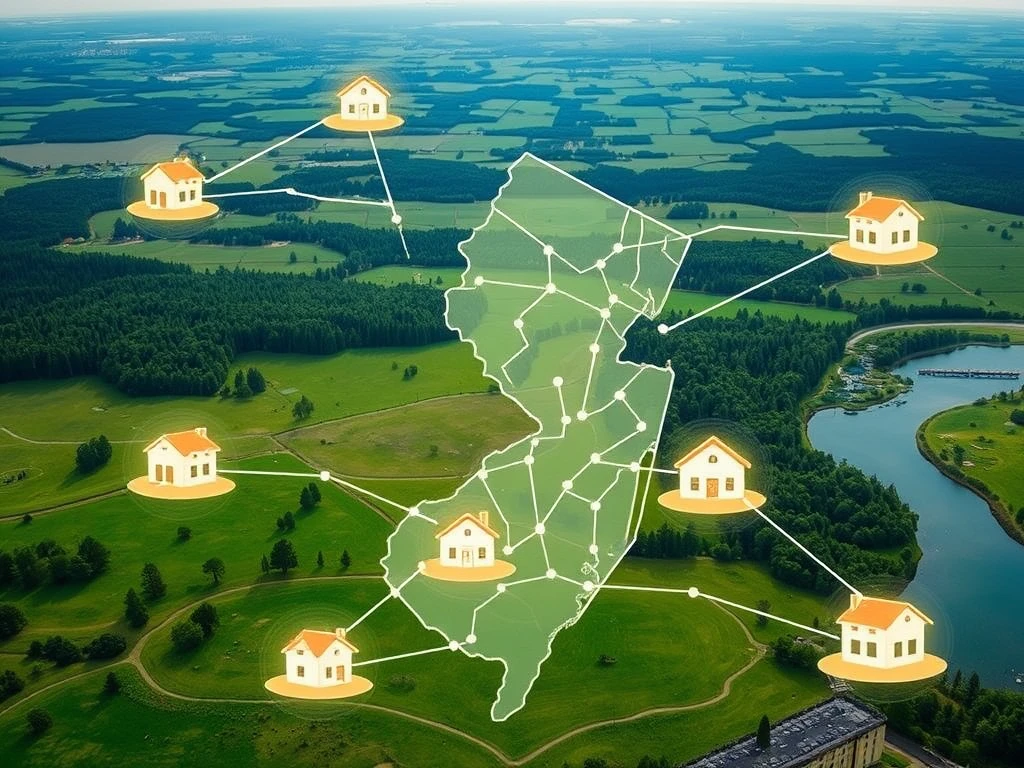Historic Property Deeds Tokenization Begins in New Jersey

Big news is shaking up the world of real estate and digital assets! A major county in New Jersey is taking a significant step by putting its property deeds onto a blockchain. This move is set to change how land records are managed, potentially impacting how we think about ownership and transactions in the future.
New Jersey Embraces Property Deeds Tokenization
Officials in Bergen County, New Jersey, have signed a five-year agreement with Balcony, a firm specializing in blockchain-based land record management. The goal? To tokenize 370,000 property deeds on the Avalanche blockchain. This project is being called the largest of its kind in U.S. history, involving an estimated $240 billion worth of real estate assets.
Bergen County is a populous area located near New York City. The decision to use tokenization aims to bring government record systems into the digital age, moving away from outdated methods.
What Does Tokenization Mean for Real Estate?
Tokenization involves representing a real-world asset, like a property deed, as a digital token on a blockchain. This process offers several potential benefits:
- Enhanced Security: Blockchain technology creates a tamper-proof record of ownership and transaction history.
- Improved Efficiency: Balcony expects the integration to significantly cut down deed processing times.
- Reduced Risk: Tokenization can help lower the chances of fraud, disputes over title, and administrative mistakes.
- Increased Transparency: A searchable chain of title is created, making records more accessible while maintaining security.
This initiative highlights how blockchain can provide real-world value by modernizing essential government functions.
Powering the Shift: Blockchain Technology
The project is being built on the Avalanche blockchain and received support from Blizzard, a fund focused on the Avalanche ecosystem. Using a blockchain ensures that once a property deed is tokenized, its record is immutable and distributed across the network, making it highly secure and reliable compared to traditional paper-based or centralized digital systems.
Balcony CEO Dan Silverman sees this as a pivotal moment for government records and real estate. He stated that the project demonstrates how secure, distributed systems can replace old infrastructure and deliver value for both government bodies and the public they serve.
Expanding Blockchain Real Estate in New Jersey and Beyond
This effort in Bergen County isn’t an isolated event. Balcony is reportedly working with several other counties in New Jersey to update their real estate record management. The company noted that one county lost significant municipal revenue due to incomplete records under the old system, underscoring the need for more effective solutions like blockchain.
With the addition of Bergen County’s 370,000 tokenized property deeds, the total number of tokenized deeds in New Jersey is nearing half a million. Balcony has also indicated plans to expand its services to other states in the future, suggesting this could be the beginning of a broader trend in real estate record management across the U.S.
Conclusion: A Glimpse into the Future of Property Records
The tokenization of property deeds in Bergen County, New Jersey, represents a significant step forward in integrating blockchain technology with traditional systems. By leveraging the security and efficiency of blockchain, counties can create more reliable, accessible, and fraud-resistant land records. This project could serve as a blueprint for other municipalities looking to modernize their real estate management, paving the way for wider adoption of tokenization in the future.









